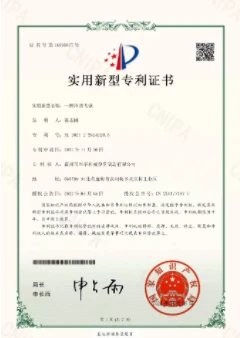portable roll forming machine
Portable Roll Forming Machines A Revolution in Metal Fabrication
In the ever-evolving field of construction and metalworking, efficiency and versatility are paramount. One of the game-changing innovations in this realm is the portable roll forming machine. Designed to produce metal profiles with precision and ease, these machines are transforming how contractors and manufacturers approach fabrication tasks. In this article, we will explore the key features, benefits, and applications of portable roll forming machines.
Understanding Roll Forming
Roll forming is a continuous bending operation in which a long strip of metal—often coiled—passes through consecutive pairs of rolls, each performing incremental bends. This method produces various profiles, such as metal roofing sheets, wall panels, and structural components. Traditionally, roll forming required large, stationary machines, best suited for high-volume production in manufacturing facilities. However, the advent of portable roll forming machines has significantly changed this landscape.
Key Features of Portable Roll Forming Machines
A portable roll forming machine is engineered for mobility and adaptability. Key features of these machines often include
1. Compact Design The machines are built in a way that allows them to be easily transported to job sites. Their lightweight and compact nature means they can fit into standard trailers or even be lifted by cranes.
2. Ease of Operation Most portable roll forming machines come equipped with user-friendly controls and automation features. This makes it easier for operators, even those with limited experience, to produce consistent results.
3. Versatility These machines are capable of producing a wide range of profiles from different materials, including steel, aluminum, and copper. This adaptability makes them suitable for various projects, from residential roofing to commercial structures.
4. Customization Many portable roll forming machines allow for custom tooling, enabling the production of unique profiles tailored to specific project needs.
5. Power Options Portable machines can be powered by electricity, diesel, or hydraulic systems, providing flexibility to operate in various environments. This feature is especially important for remote job sites lacking access to grid power.
portable roll forming machine

Benefits of Portable Roll Forming Machines
The adoption of portable roll forming machines offers numerous benefits that appeal to contractors and manufacturers alike
1. Reduced Waste By fabricating material on-site, the amount of waste generated during transportation and handling is minimized. This results in cost savings and a more environmentally friendly operation.
2. Time Efficiency The ability to create metal components on-site allows for faster project turnaround. Workers can produce the required materials as they are needed, which is particularly advantageous for projects with tight deadlines.
3. Quality Control On-site fabrication ensures that the final product meets the specific requirements of the project. It reduces the risk of errors that can occur during shipping and handling of pre-fabricated materials.
4. Cost-Effectiveness While the initial investment in a portable roll forming machine can be substantial, the long-term savings in transportation costs, material waste, and labor make it an economically sensible option for many businesses.
5. Enhanced Safety Having fewer transportation and handling processes reduces the risk of accidents and injuries associated with moving large, heavy metal components.
Applications in the Industry
Portable roll forming machines are being embraced across various sectors. In residential construction, they are commonly used to produce roofing and siding materials on-site, ensuring a perfect fit. In the commercial sector, they are employed to create structural components, canopies, and metal studs. Furthermore, industries such as automotive and manufacturing utilize portable roll forming for creating custom parts and equipment.
Conclusion
The portable roll forming machine represents a significant advancement in the field of metal fabrication. Its mobility, efficiency, and versatility make it an invaluable tool for modern construction and manufacturing. As the demand for customized metal solutions continues to rise, the ability to produce high-quality components on-site will only grow in importance. With ongoing advancements in technology, portable roll forming machines are set to become an integral part of the future of metalworking, providing innovative solutions and enhancing productivity in the industry.
-
High Frequency Straight Seam Welded Pipe Production Line-BzZhou Xinghua Machinery Equipment Manufacturing Co., LTD.|line pipe steel&welded gas pipeNewsJul.30,2025
-
High Frequency Straight Seam Welded Pipe Production Line-BzZhou Xinghua Machinery Equipment Manufacturing Co., LTD.|High Precision&Automated SolutionsNewsJul.30,2025
-
High Frequency Straight Seam Welded Pipe Production Line - BzZhou Xinghua Machinery Equipment Manufacturing Co., Ltd.NewsJul.30,2025
-
High Frequency Straight Seam Welded Pipe Production Line-BzZhou Xinghua Machinery Equipment Manufacturing Co., LTD.|Precision Welding, High EfficiencyNewsJul.30,2025
-
High Frequency Straight Seam Welded Pipe Production Line|BzZhou Xinghua|Precision Welding&EfficiencyNewsJul.30,2025
-
High Frequency Straight Seam Welded Pipe Production Line - BzZhou Xinghua|Precision Engineering&EfficiencyNewsJul.30,2025


